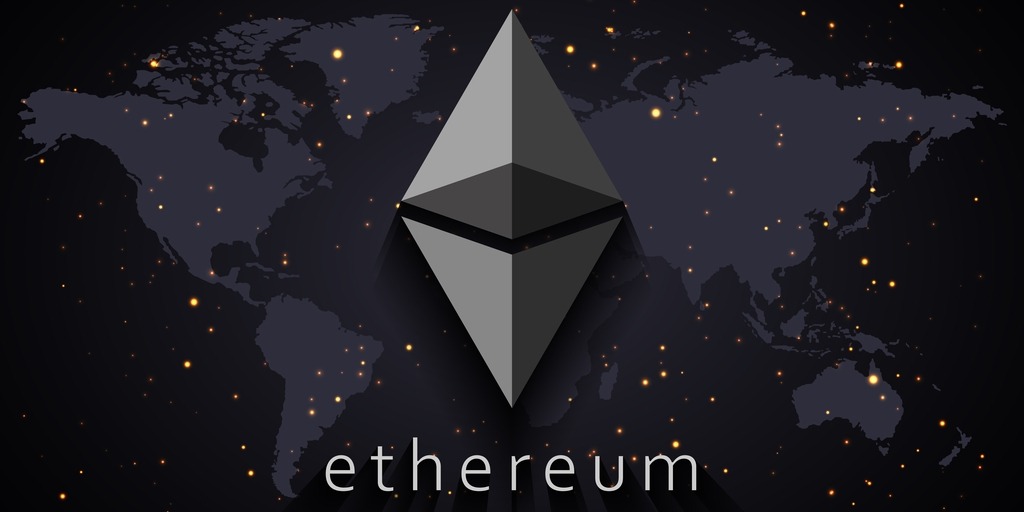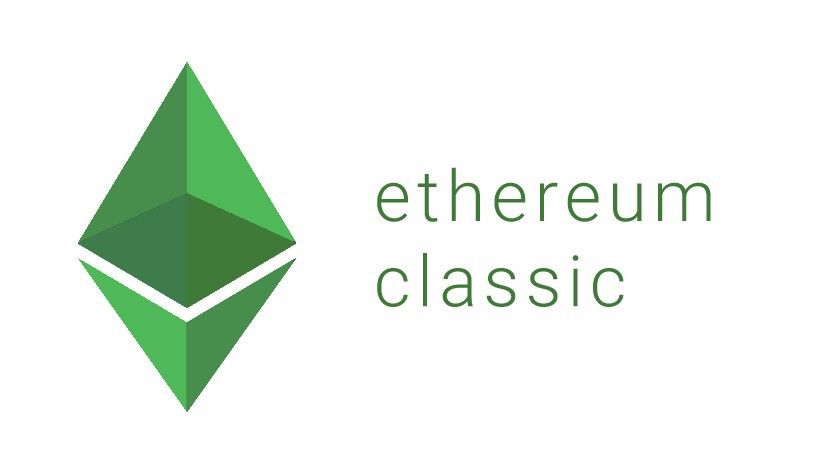Leveraging Ethereum Blockchain for Best And Efficient Supply Chain Management In 2024
In today’s fast-paced world, managing supply chains effectively is more important than ever. The Ethereum blockchain offers innovative solutions that can help streamline processes, improve transparency, and enhance trust among participants. By using smart contracts and blockchain technology, businesses can ensure that their supply chains are not only efficient but also secure and reliable. This article explores how Ethereum can transform supply chain management, making it more effective and responsive to modern challenges.
Key Takeaways
- Ethereum blockchain enhances supply chain transparency and trust.
- Smart contracts automate processes, reducing time and costs.
- Blockchain provides better tracking of products and their histories.
- Decentralization minimizes risks of fraud and errors.
- Integrating IoT with blockchain can further improve efficiency.
Understanding Ethereum Blockchain-Based Supply Chain Solutions
Key Concepts of Blockchain Technology
Blockchain technology is a way to store information securely. It works like a digital ledger that everyone can see but no one can change. This makes it very hard for anyone to cheat the system. Here are some key points about blockchain:
- Decentralization: No single person controls the data.
- Immutability: Once data is added, it cannot be changed.
- Transparency: Everyone can see the transactions.
Role of Ethereum in Supply Chain Management
Ethereum is a popular blockchain platform that allows developers to create smart contracts. These contracts automatically execute actions when certain conditions are met. In supply chains, Ethereum helps in:
- Automating processes: Reducing the need for manual checks.
- Enhancing security: Protecting sensitive data from unauthorized access.
- Improving collaboration: Allowing different parties to work together more easily.
Advantages of Blockchain for Supply Chains
Using blockchain in supply chains offers many benefits:
- Increased efficiency: Processes can be completed faster.
- Better traceability: Products can be tracked from origin to destination.
- Cost savings: Reducing errors and fraud can lower expenses.
Blockchain technology is changing how businesses operate, making them more efficient and trustworthy.
In summary, leveraging Ethereum blockchain can significantly improve supply chain management by enhancing security, efficiency, and transparency. By understanding these concepts, businesses can better adapt to the changing landscape of supply chain operations.
Also, read – Supply Chain Transparency with Blockchain: Amazing Industry Insights In 2024
Implementing Smart Contracts for Supply Chain Efficiency
Introduction to Smart Contracts
Smart contracts are self-executing contracts with the terms of the agreement directly written into code. They automatically enforce and execute agreements when conditions are met. This technology can significantly enhance efficiency in supply chains.
Smart Contract Frameworks for Supply Chains
There are several frameworks available for implementing smart contracts in supply chains. Here are a few notable ones:
- Ethereum: The most popular platform for smart contracts, known for its flexibility and robust community support.
- Hyperledger Fabric: A permissioned blockchain framework that allows for private transactions and is suitable for enterprise solutions.
- Corda: Designed for business, it focuses on privacy and allows only relevant parties to see transactions.
Benefits of Using Smart Contracts in Supply Chains
Using smart contracts in supply chains offers numerous advantages:
- Cost Reduction: By automating processes, companies can save on transaction costs.
- Increased Transparency: All parties can view the same data, reducing disputes.
- Enhanced Security: Smart contracts are stored on the blockchain, making them tamper-proof.
Smart contracts can lead to more efficient supply chain management by automating processes and ensuring compliance with predefined terms.
In conclusion, implementing smart contracts can transform supply chain operations, making them more efficient and reliable. By leveraging this technology, businesses can streamline their processes and improve overall performance.
Enhancing Traceability and Transparency with Ethereum
Traceability in Supply Chains
Traceability is crucial in supply chains as it allows businesses to track the journey of products from origin to consumer. With Ethereum, this process becomes more reliable and efficient. By using blockchain technology, every transaction is recorded in a secure and transparent manner, making it easy to trace products at any point in the supply chain.
Transparency Through Blockchain
Blockchain enhances transparency by providing a public ledger that all parties can access. This means that everyone involved in the supply chain can see the same information, reducing the chances of fraud and errors. Here are some key benefits of transparency in supply chains:
- Increased trust among stakeholders
- Improved compliance with regulations
- Faster response to issues or recalls
Case Studies of Improved Traceability
Several companies have successfully implemented Ethereum blockchain for better traceability. For example, a recent study highlighted how a pharmaceutical company used blockchain to track its products, ensuring safety and authenticity. The results showed significant improvements in tracking efficiency and data accuracy.
| Company | Industry | Improvement Achieved |
|---|---|---|
| Pharma Co. | Pharmaceuticals | Enhanced product safety |
| Agri Corp. | Agriculture | Reduced fraud and waste |
| Retailer Inc. | Retail | Streamlined operations |
The integration of Ethereum blockchain in supply chains not only boosts traceability but also fosters a culture of accountability and trust among all participants.
By leveraging Ethereum, businesses can ensure that their supply chains are not only efficient but also transparent and trustworthy, ultimately leading to better customer satisfaction and loyalty.
Addressing Challenges in Blockchain-Based Supply Chain Solutions
Common Challenges and Solutions
Implementing blockchain in supply chains comes with its own set of challenges. Here are some common issues and potential solutions:
- Data Fragmentation: Different stakeholders may use various systems, leading to inconsistent data. A unified platform can help.
- Cost Implications: Initial setup costs can be high. Exploring partnerships can reduce expenses.
- Scalability Issues: As the network grows, performance may decline. Using more efficient consensus algorithms can help.
Cost Implications and Mitigation
The costs associated with blockchain implementation can be significant. Here are some strategies to mitigate these costs:
- Shared Infrastructure: Collaborate with other companies to share the costs of technology.
- Phased Implementation: Start small and gradually expand to manage expenses better.
- Government Grants: Look for funding opportunities that support technology adoption.
Scalability and Performance Issues
Scalability is crucial for the success of blockchain in supply chains. Here are some considerations:
- Transaction Speed: Ensure the system can handle a high volume of transactions without delays.
- Network Size: A larger network can lead to slower performance. Optimize the number of participants.
- Data Storage: Use off-chain storage solutions to keep the blockchain efficient.
Blockchain technology has the potential to transform the inefficiencies in the logistics sector with its ability to provide secure traceability and control. However, careful planning is essential to overcome the challenges it presents.
Future Trends in Ethereum Blockchain-Based Supply Chain Solutions
Integration with IoT and AI
The future of supply chains is bright with the integration of Internet of Things (IoT) and Artificial Intelligence (AI). These technologies can help create smarter supply chains that respond quickly to changes. By using real-time data, companies can better predict demand and reduce waste. Here are some key benefits:
- Enhanced data collection for better decision-making.
- Improved efficiency through automation.
- Real-time monitoring to prevent issues before they arise.
Decentralized Finance (DeFi) for Supply Chains
Decentralized Finance (DeFi) is changing how supply chains are funded. It offers more transparent and efficient financing options. This can be especially helpful for businesses in developing areas. Some advantages include:
- Easier access to funds for small businesses.
- Lower costs compared to traditional financing.
- Increased liquidity in supply chains.
Regulatory and Ethical Considerations
As blockchain technology evolves, it’s important to keep up with regulatory and ethical standards. Companies must ensure that their practices are legal and fair. This includes:
- Regularly updating policies to meet new laws.
- Ensuring data privacy and security for all participants.
- Addressing ethical concerns related to technology use.
The future of supply chains will require a mix of technology and responsibility. Companies must adapt to changes while keeping ethical practices in mind.
In summary, the integration of IoT and AI, the rise of DeFi, and a focus on regulatory standards will shape the future of Ethereum blockchain in supply chain management. These trends will lead to more efficient, transparent, and responsible supply chains.
Case Studies of Ethereum Blockchain in Supply Chain Management
Real-World Implementations
Many companies are now using Ethereum blockchain to improve their supply chains. Here are some notable examples:
- Walmart: They track food products to ensure safety and freshness.
- De Beers: They use blockchain to trace the origin of diamonds, ensuring they are conflict-free.
- IBM: Their Food Trust platform helps businesses track food from farm to table.
Success Stories
These implementations have shown significant benefits:
- Increased Efficiency: Companies report faster processing times.
- Enhanced Security: Data is protected from tampering.
- Better Traceability: Products can be tracked at every stage.
Lessons Learned
From these case studies, several key lessons emerge:
- Collaboration is Key: Working together with all supply chain partners is essential.
- Education and Training: Staff need to understand how to use blockchain effectively.
- Adaptability: Solutions must be flexible to meet changing needs.
The integration of blockchain technology is not just about technology; it’s about transforming how businesses operate and interact with each other. This shift can lead to a more transparent and efficient supply chain.
In summary, the use of Ethereum blockchain in supply chain management is proving to be a game-changer, offering innovative solutions to age-old problems. As more companies adopt this technology, the potential for improved efficiency and transparency continues to grow.
Conclusion
In conclusion, using Ethereum blockchain for supply chain management can greatly improve how businesses operate. By applying smart contracts, companies can track products more easily and ensure that everything is transparent and secure. This technology helps reduce mistakes and fraud, making it easier for everyone involved to trust one another. However, it’s important to remember that not every supply chain is the same, and some may need special solutions to fit their needs. As technology continues to change, businesses should keep exploring new ways to use blockchain to make their supply chains even better.
Frequently Asked Questions
What is Ethereum and how does it relate to supply chains?
Ethereum is a type of blockchain that allows for secure online transactions. In supply chains, it helps track products from start to finish, making sure everything is safe and transparent.
What are smart contracts and why are they important?
Smart contracts are digital agreements that automatically execute when certain conditions are met. They are important in supply chains because they speed up processes and reduce the need for middlemen.
How can Ethereum improve transparency in supply chains?
Ethereum improves transparency by keeping a public record of all transactions. This means everyone involved can see the product’s journey, which helps build trust.
What challenges might businesses face when using blockchain for supply chains?
Businesses might struggle with the cost of implementing blockchain, the need for skilled workers, and the complexity of integrating new technology into existing systems.
What are the future trends for using Ethereum in supply chains?
Future trends include using Ethereum with technologies like IoT and AI to make supply chains smarter and more efficient, as well as exploring new financing options.
Can you give an example of a successful use of Ethereum in supply chains?
A good example is a company that used Ethereum to track food products from farms to stores. This helped ensure the food was safe and fresh, and customers could see where it came from.
Stay informed with daily updates from Blockchain Magazine on Google News. Click here to follow us and mark as favorite: [Blockchain Magazine on Google News].
Get Blockchain Insights In Inbox
Stay ahead of the curve with expert analysis and market updates.
latest from tech
Disclaimer: Any post shared by a third-party agency are sponsored and Blockchain Magazine has no views on any such posts. The views and opinions expressed in this post are those of the clients and do not necessarily reflect the official policy or position of Blockchain Magazine. The information provided in this post is for informational purposes only and should not be considered as financial, investment, or professional advice. Blockchain Magazine does not endorse or promote any specific products, services, or companies mentioned in this posts. Readers are encouraged to conduct their own research and consult with a qualified professional before making any financial decisions. The featured image used is just a creative depiction of the title and it does not intend to hurt sentiments of any person or institution. If it hurts anyone sentiments, please do not hesitate to reach out to Blockchain Magazine.

 Bitcoin
Bitcoin  Ethereum
Ethereum  XRP
XRP  Tether
Tether  Solana
Solana  Dogecoin
Dogecoin  USDC
USDC  Cardano
Cardano  Lido Staked Ether
Lido Staked Ether  TRON
TRON  Chainlink
Chainlink  Avalanche
Avalanche  Stellar
Stellar  Wrapped stETH
Wrapped stETH  Wrapped Bitcoin
Wrapped Bitcoin  Sui
Sui  Hedera
Hedera  Toncoin
Toncoin  Shiba Inu
Shiba Inu  WETH
WETH  Polkadot
Polkadot  Parkcoin
Parkcoin  LEO Token
LEO Token  Litecoin
Litecoin  Bitget Token
Bitget Token  Bitcoin Cash
Bitcoin Cash  Uniswap
Uniswap  Hyperliquid
Hyperliquid  Official Trump
Official Trump  Wrapped eETH
Wrapped eETH  Pepe
Pepe  USDS
USDS  NEAR Protocol
NEAR Protocol  Ethena USDe
Ethena USDe  Aave
Aave  Aptos
Aptos  Internet Computer
Internet Computer  Ondo
Ondo  Ethereum Classic
Ethereum Classic  Monero
Monero  POL (ex-MATIC)
POL (ex-MATIC)  Algorand
Algorand  Cronos
Cronos  Dai
Dai  OKB
OKB  Mantle
Mantle  MANTRA
MANTRA  Render
Render 




